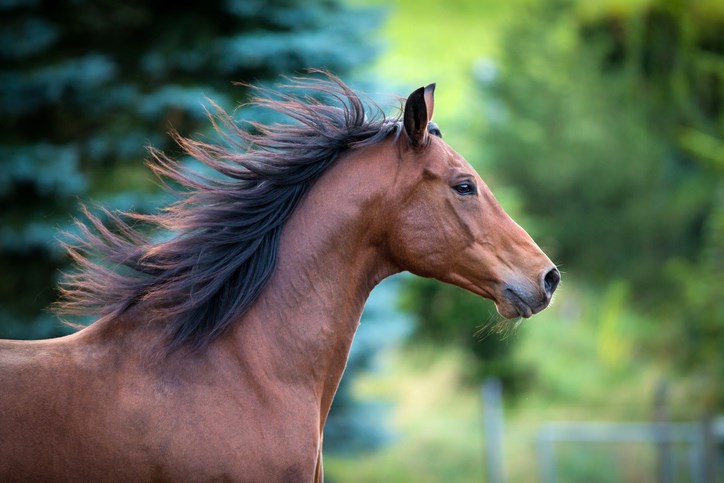Over the past few years, some Canadians have started to ponder moving towards diets that reduce or eliminate the consumption of animals.
At this point, we are not near a scenario where most residents of the country are willing to complete this shift. In 2020, we found that 76% of Canadians are . However, as outlined by the 60% of Canadians who told us in 2019 that they would try , the process is ongoing.
The COVID-19 pandemic has had some effect on our food intake. In June 2020, we found that in their reliance on meat (73%), poultry (69%) and fish (69%). Fewer opportunities to dine out have made Canadians less adventurous when it comes to savouring new ingredients. We rely on tried and tested recipes at home, with the country’s traditional food staples. This is in stark contrast to the appetite that foreign markets have developed for Canadian horses.
The export of Canadian horses for slaughter and human consumption in Asia is not new. Since 2013, more than 30,000 Canadian horses have been sent to Japan and South Korea, where they end up on the menus of certain restaurants. When Research Co. and Glacier Media asked this month, only 16% of Canadians were aware of this practice. This leaves more than four in five residents of the country (84%) who had no idea about the export of Canadians horses for meat.
An important distinction that must be made about the way Canadians feel about this issue is related to our own perceptions of animals as food sources. Only 27% of Canadians deem it appropriate for humans to consume horse meat, the lowest proportion by far among 11 different species tested in our survey.
Rabbits and geese, whose culinary use has been controversial in the past, are regarded as appropriate food sources by 58% of Canadians. Significantly more of the country’s residents see no problem with other animals ending up on our plates, such as cattle (75%), pigs (79%) and chickens (88%).
Concerns about live horse exports are dual. There are growing concerns about the way in which these animals are treated as they spend hours in transcontinental flights. In addition, the notion of Canada’s participation in satiating the curiosity of Asian diners is even less pleasant because more than seven in 10 Canadians do not think of horses as food.
When asked directly about the export of Canadian horses for slaughter and human consumption abroad, two-thirds of Canadians (67%) voice opposition, while 22% are supportive of the practice and 12% are undecided.
There is little fluctuation when the views of Canadians are analyzed by age. Women are slightly more likely to be against the export of live horses (76%) than their male counterparts (54%).
Four decades ago, Peter C. Newman famously described Alberta as “” when discussing local reaction to a quip that featured the name of a prime minister and a particular body part of equines.
Four decades later, the moniker still stands. Aversion to the export of Canadian horses for slaughter and human consumption abroad reaches 74% in Alberta, the highest in the country. Rejection of the practice is also significant in Atlantic Canada (73%), Ontario (70%), Saskatchewan and Manitoba (66%) and British Columbia (also 66%). In Quebec, where some restaurants and butcher shops sell horse meat, 62% of residents are against live exports of horses.
For the groups that are interested in taking on this particular component of the meat industry, there are both challenges and silver linings. The level of awareness of this practice is decidedly low, even after eight years and 30,000 live horses sent to Asia. However, the idea of these Canadian animals being processed as food is not tolerable for a majority of the country’s residents, and two-thirds are not particularly thrilled with Canadian involvement in this business.
There is also a local angle that is especially appealing. We have seen residents of Alberta lag behind their counterparts in other Canadian provinces on specific issues related to animal welfare. For instance, while 62% of Canadians voiced last year, only 47% of Albertans concurred. However, on the issue of horses as food, the views are radically different. Residents of Alberta may not be regarded as natural allies of the animal welfare movement on entertainment and captivity, but when it comes to horses as food, they are appalled.
Mario Canseco is president of Research Co.
Results are based on an online survey conducted from February 11 to February 13, 2021, among 1,000 adults in Canada. The data has been statistically weighted according to Canadian census figures for age, gender and region in Canada. The margin of error, which measures sample variability, is plus or minus 3.1 percentage points, 19 times out of 20.

